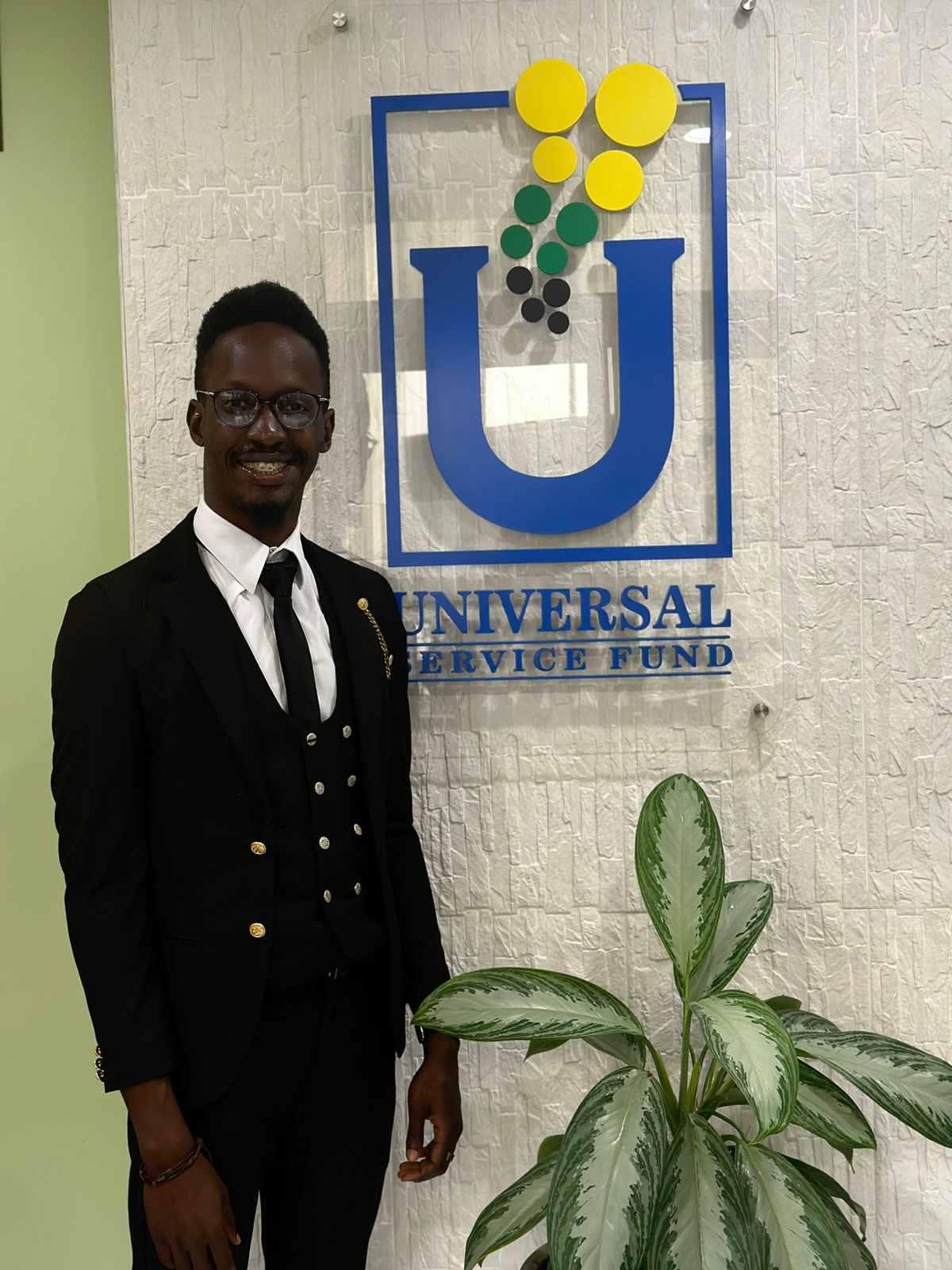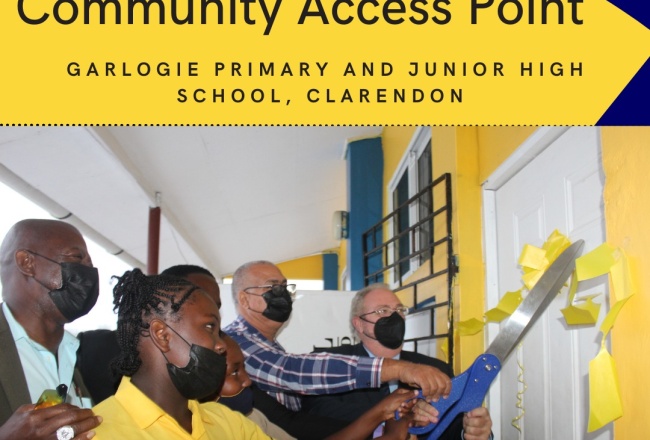USF Continues to Expand Digital Inclusivity Across Island
By: , August 25, 2023The Full Story
The Universal Service Fund (USF) continues its drive to increase digital inclusivity across the island through its many projects that seek to facilitate Internet access in underserved communities across the island.
The USF is the lead entity in the implementation of several major projects aimed at strengthening the country’s digital infrastructure, in line with the Government’s mandate to build out a digital society.
Community Access Points (CAPs), under which computer labs are established in communities in collaboration with community organisations, and the Community Wi-Fi programme, designed to increase access to the Internet across 63 constituencies, are two of the entity’s flagship programmes that provide free Wi-Fi access to members of the public.
Marketing and Public Relations Manager at the USF, Oraine Wallace, tells JIS News that, to date, 189 hotspots have been executed across the island, spanning three sites per electoral constituency.
“Consistent with the USF’s thrust to enable a knowledge-based society through universal access to the Internet and [facilitating] digital inclusion, we are currently trying to expand the scope of the programme with an additional 63 hotspots across the island, so that is an additional hotspot per constituency,” he notes.

A community member of Old Braeton in Portmore says the service is a welcome resource.
“I think it is a good idea because the children will now be more engaged in their school activities as well as parents who don’t have the finances to put on data, so I think the free Wi-Fi is tremendous,” she says.
The Fund is executing several projects simultaneously, with the objective of fast-tracking the buildout of the national ICT infrastructure.
Other initiatives include the ‘USF Connect Jamaica’, which aims to establish free Wi-Fi in high-traffic areas (parks and town centres); the ‘Tablets in Schools’ programme, which distributes devices to students at the primary and secondary levels, special education institutions, and at select teachers’ colleges.
“All 14 parish capitals have been provided with Wi-Fi Service under this initiative. In addition, public parks, green spaces, and thoroughfares [have been] furnished with the facility. Notably, the Fund has established a total of 19 Connect Jamaica sites,” he adds.
Mr. Wallace says the USF has completed five new public Wi-Fi sites in Christiana, Portmore, St. Ann’s Bay, Santa Cruz, and Spanish Town, which has moved the total public Wi-Fi deployment to 24 for the 2022/2023 financial year. Commissioning of these sites is to take place shortly.
Under the USF’s ‘Islandwide Broadband Network’ initiative, it provides connectivity to schools, hospitals, libraries, police stations and health centres, as well as provides these institutions with Internet access.
Also, the ‘National Broadband Initiative’ continues to fund national projects in collaboration with the National Works Agency (NWA), e-Gov Jamaica Limited, and the Ministry of Education and Youth.
An important aspect of building out the national digital infrastructure is the education of young talent in the ICT space, through its Technology Advancement Programme (TAP).
Tatiyana, who participated in the TAP programme in 2018, says the experience has changed the trajectory of her life.
“I sincerely cannot express how valuable this was and how valuable it can be for others. The best part of this is that I have managed to secure a job, and I am definitely grateful and thankful for TAP providing me with this platform for practical learning and preparing me for the corporate world,” she shares.
The 12-month programme facilitates training, certification, and provides work experience opportunities for young people, aged 18 to 35, in ICT skills.
“Budgetary provision for TAP III has been made to train 300 participants in coding, being administered by Amber and HEART/NSTA Trust. Some 200 of these participants have been enrolled and are actively pursuing their coding programme at seven sites across the country, utilising facilities at UTech Jamaica in Kingston, and Montego Bay Campuses, Moneague Teachers’ College, Youth Innovation centres, and CAP facilities,” he says.
In its support of the education sector, the USF’s Special Projects component undertakes initiatives aimed at improving the information and communications technology infrastructure of educational institutions and Government ministries, departments and agencies (MDAs).
These include the provision of free Wi-Fi at tertiary institutions, computer equipment to the Jamaica Constabulary Force (JCF) and the establishment of an infection surveillance system at the University Hospital of the West Indies (UHWI).
The Fund provides free Wi-Fi access to students at the University of the West Indies (UWI) Mona Campus, University of Technology (UTech), and the Edna Manley College for the Visual and Performing Arts.
It has upgraded the ICT infrastructure of the Collage of Agriculture, Science and Education (CASE), The Mico University College, and the Caribbean Maritime University (CMU).
The USF has also established and launched 15 ICT clubs in Central High, Little London High, Lacovia High, Port Antonio High, Old Harbour High, Bustamante High, Buff Bay High, Vauxhall High, Green Pond High, Wycliffe Martin High, Spot Valley High, Herbert Morrison High, Mt. Alvernia High, Mona High and Belair High Schools.
“We believe in full inclusivity when it comes to Wi-Fi access and devices for all Jamaicans,” Mr. Wallace says.


